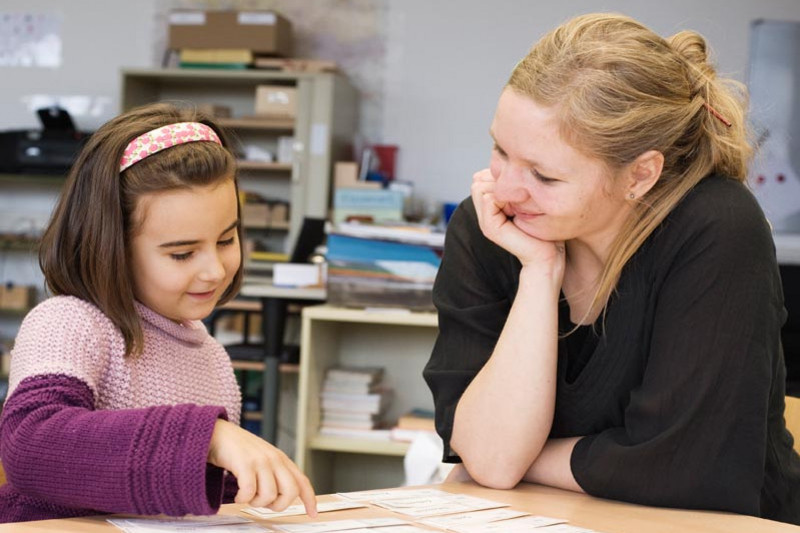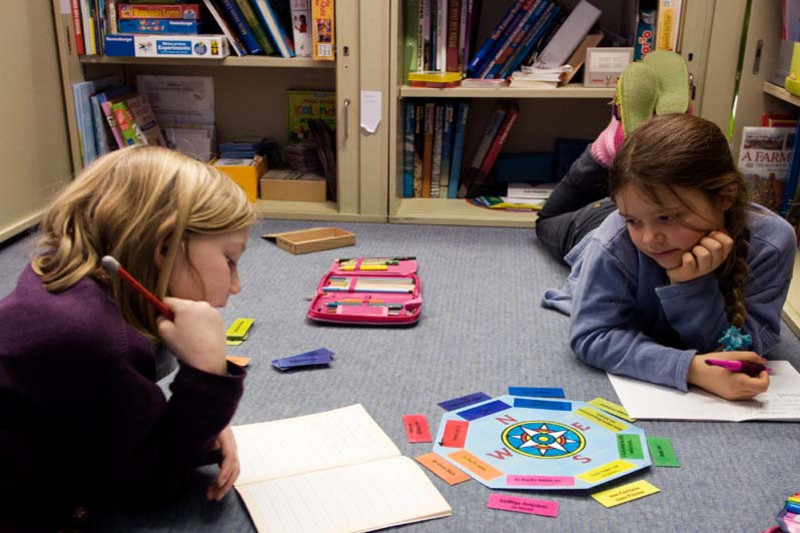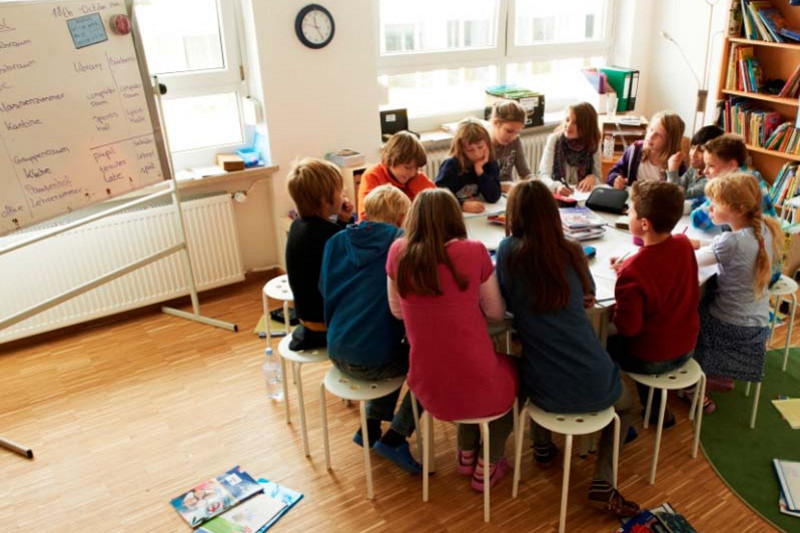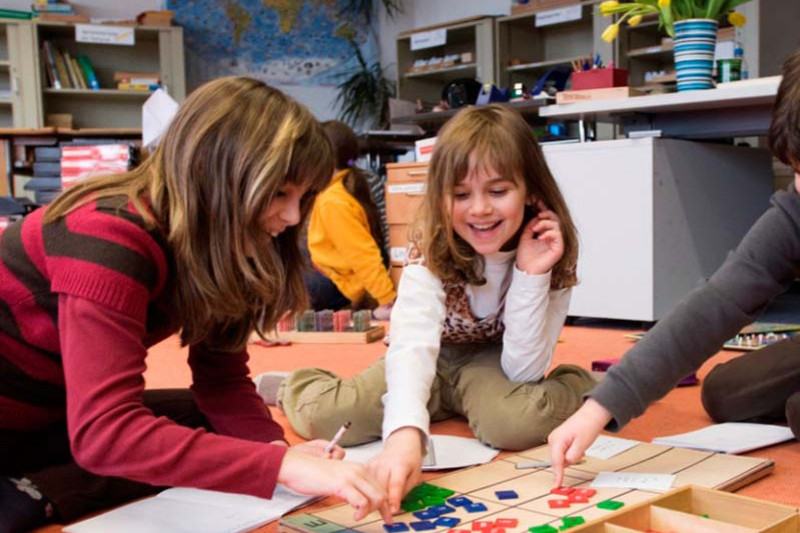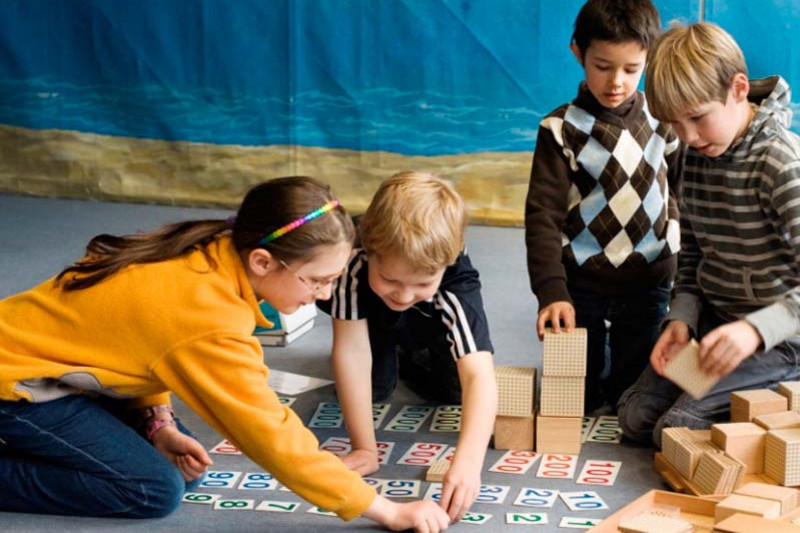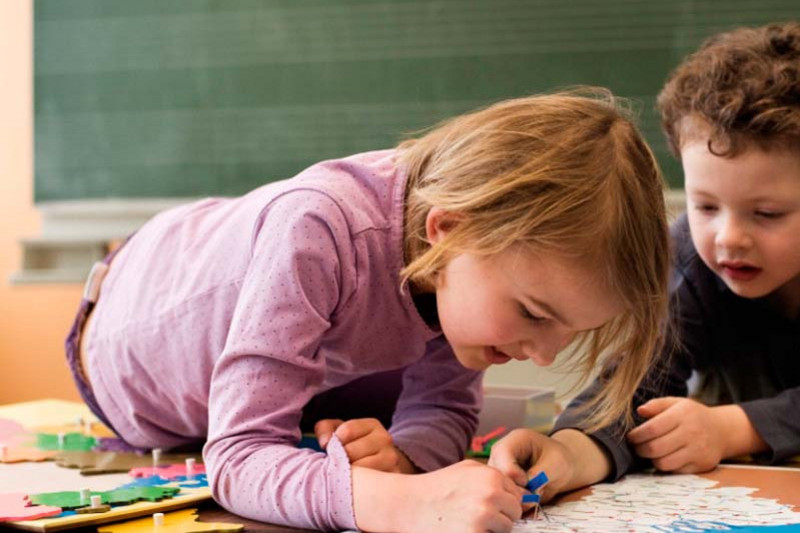Seeing the Bigger Picture: New Technical High School at the Emile Montessori School Munich
The so-called MINT subjects (math, IT, natural sciences, and technology) are, while important for society, disliked by many students and often seen as “dry.” But the Emile Montessori School in the East of Munich is demonstrating that this doesn't have to be the case. Here, environmental questions expand the spectrum of inquiry, and regular practical experiences teach students about the applicability of what they're learning. Now the school has been expanded to include a technical high school (Fachoberschule).
Our lives are more and more defined by networking and increasing technological dependence; key competences such as team skills and holistic thinking are becoming ever more important. Good schools want to prepare children and young people to meet these challenges in an individualized way. The Montessori approach is characterized by practically oriented and interdisciplinary learning. Mixed-age classes and an emphasis on teamwork encourage students to develop personal responsibility and self-management skills from an early age.
Between Beavers and Grand Hotels
The Emile Montessori School München in Neubiberg also places a particular emphasis on mathematics and the natural sciences. The connections to practical everyday life, for example with respect to environmental questions, are central. “Most children have a large interest in the natural sciences and their connections. We want to nourish this curiosity in students' own experiences,” says Angelika Bachmann, teacher and principal of the Emile school. “Seeing the bigger picture isn't something we have to explicitly demand - here, our students are encouraged to think and to act holistically through interdisciplinary teaching and projects.”
Most Montessori schools are limited to the elementary school grades. The Emile school offers middle classes that lead to the Hauptschulabschluss and to the Mittlere Reife - and, since, the school year 2015/206, the Emile school also offers a technical high school. The first eleventh grade class started at the technical high school this year with the subject focus “Applied natural sciences / Agriculture, biology, and environmental technologies and society.” The students experience a constant dialogue between theory and practice. They alternate, in three-week rotations, between the classroom and various practical experiences. While one student in the eleventh grade class perhaps examines the habitats of beavers, another student may just be stepping into the glittering world of one of the grand hotels of Munich. Well-known institutions such as the Frauenhofer Institute, as well as the city of Munich and the town of Neubiberg, support the school as cooperation partners.
Creating Room for Development
“Since the school was founded ten years ago, we have experienced how the children here learn with great pleasure. They leave the school not only with good final grades, but also with strong social competences,” says Kirsten Hartherz, business director of the Emile school. “For us it was natural to continue our approach through to high school and so expand the school.” In Munich, half of all students accepted to university now come from vocational or technical high schools. “What was earlier seen as a secondary educational path and rather as a detour has now become an accepted alternative to the gymnasium,” that is, the traditional German academic high school, “especially since the reduction of the school program in the context of G8,” Kirsten Hartherz adds. “The reduced number of school years in the gymnasium leaves little room for development and educational freedom,” adds Angelika Bachmann, teacher and school principal. “The technical school model, which is more praxis-oriented and allows one more year for learning, offered us a good solution.” With a successful exam after the twelfth grade, graduates of the Emile school have the right to study at a technical college; after an additional school year with a corresponding exam and a second foreign language, students can also choose to study any university subject.
Private vocational high schools face a difficult financial challenge in their first years: before they can receive public funding, there is a waiting period of at least three years, during which the school must be able to cover its own additional costs. Only after this period can the school receive public funding. “Without external financial support, this would not have been possible for us,” says Angelika Bachmann, “so we are very grateful that the Software AG Foundations offered us financial support during this time."
“I find it exciting to see how the often-unpopular MINT subjects are taught in a lively, practical way at Emile,” says Jana Wische, project manager at the Software AG Foundation. “Children and young people are supported individually here and encouraged to take the initiative.” This is what makes it so logical for the school to expand its profile to include a technical high school: “This kind of personality development is conducive to development and forward-thinking, both for the economy and in the social sphere.”

